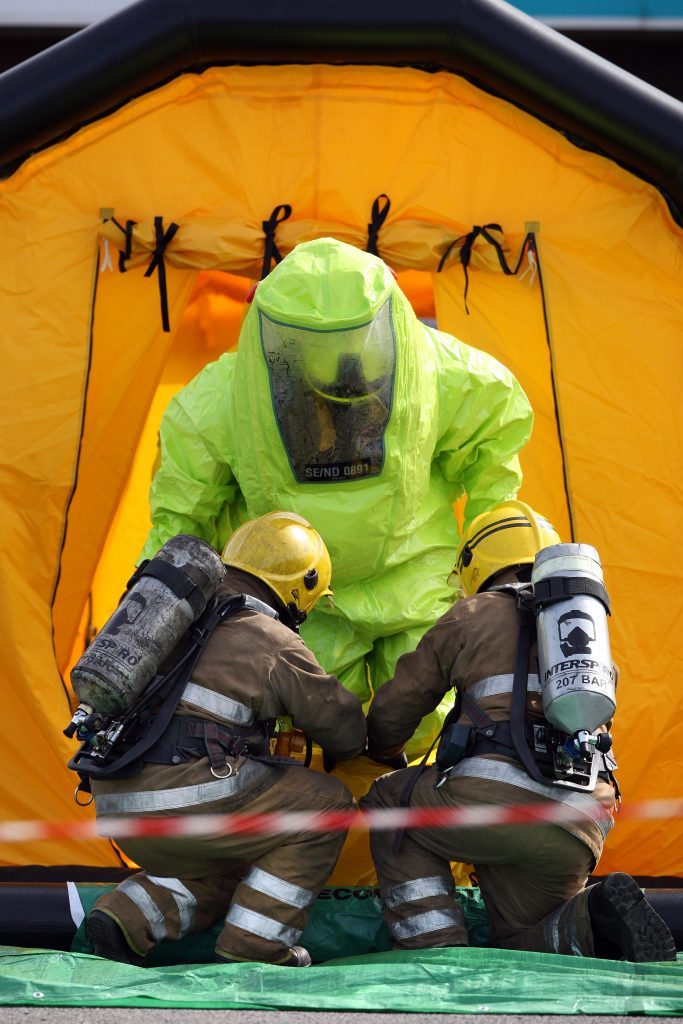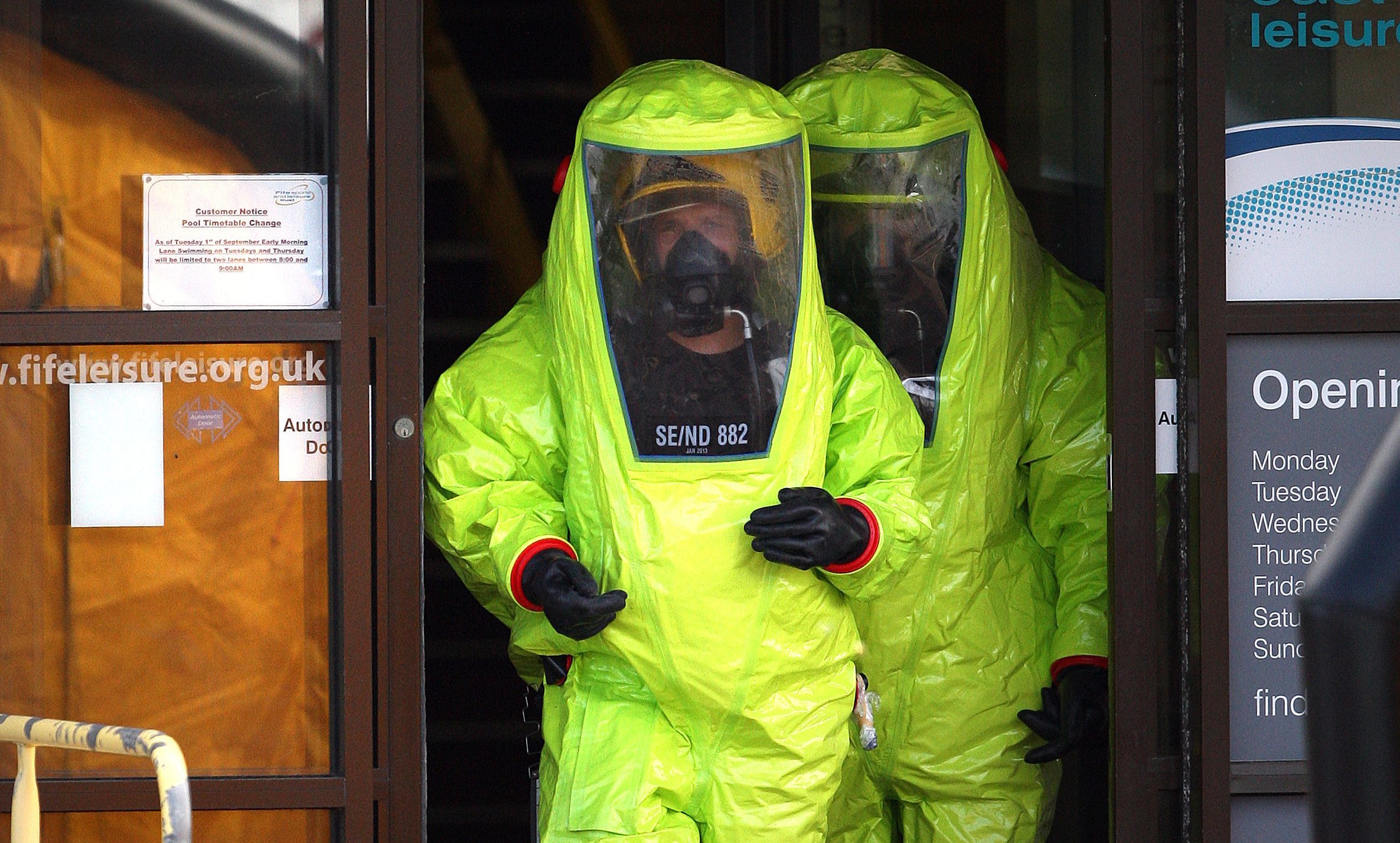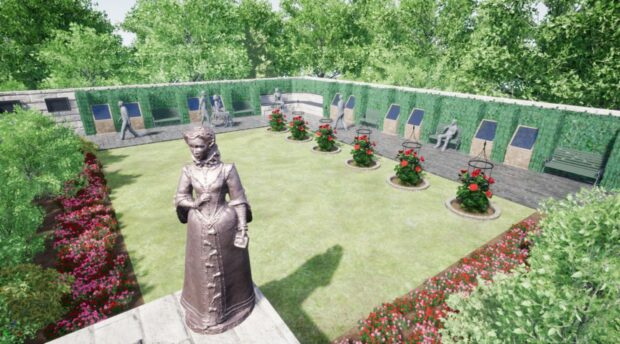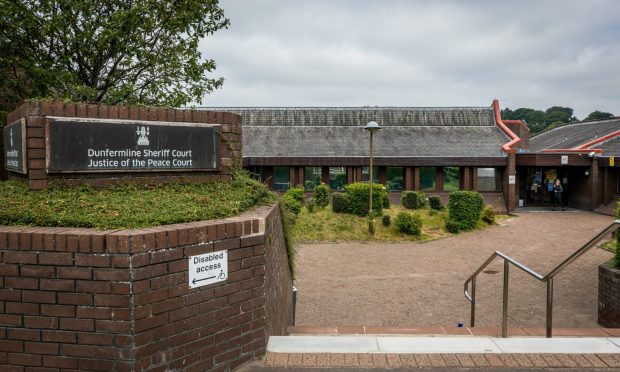A number of health and safety contraventions led to a major chemical leak at a St Andrews leisure centre last year, it has emerged.
Five children and 14 adults needed treatment for breathing difficulties following the alert at the East Sands Leisure Centre last August, although no-one was seriously injured.
A subsequent investigation by the Health and Safety Executive (HSE) pinpointed several breaches of health and safety law, although steps have now been taken to prevent a repeat.
The probe came after a leak from the chlorination system prompted an emergency evacuation of the pool, with a number of individuals who had been using it – including children between the ages of two and 12 – taken to Ninewells Hospital in Dundee.
HSE investigators initially identified that the incident had involved an uncontrolled release of the chemical sodium hypochlorite from the pool’s storage tank, but more details have come out about why it happened.
The design of the tank was “unsuitable” as it did not have “sufficient strength” for the loads applied to it, according to a HSE report, while the manufacture of the tank was not suitable because the preparation and application of the welds was of poor quality.

The support structure for the tank was also deemed unsuitable for the design of the tank which “increased the stresses in the tank” and brought about a “more rapid failure”, while the tank itself was installed in a small room which prevented proper inspection.
“Due to the small dimensions of the room the tank was housed in it was not possible to see the rear and sides of the tank,” the report noted.
“These issues should have been considered at the tank design stage and action taken to overcome this problem.
“White crystalline deposits below the tank indicate that the tank was likely to have leaked for a long time prior to failure and this could have been identified during routine examination.”
The HSE investigation also highlighted the fact that the bund surrounding the tank had been in a poor state of maintenance, but suggests this had not been noticed.
Alan Paul, senior manager for property services at Fife Council, confirmed that the bulk tank at East Sands Leisure Centre has now been removed and will not be replaced.
The centre will run on sodium hypochlorite until later this year while structural alterations are made to the plant room to facilitate the change to calcium hypochlorite – a tablet form of chlorine disinfectant.
Mr Paul said: “I would like to reassure leisure centre users and local people that our pools are safe.
“We had four other leisure centre facilities of a similar installation.
“Having carried out a cost, risk and benefit analysis we decided to change all pools to a different system that uses calcium hypochlorite, which is safer to store and, overall, the system is more cost effective to operate and maintain. Work is ongoing to convert the sites and some are already running on the new system and no facilities now store sodium hypochlorite in bulk.
“We’ll share our experience of the conversion with lead bodies in the industry and keep the Health and Safety Executive informed of our progress.”
Aside from the East Sands, facilities affected include the Beacon in Burntisland, Levenmouth, Bowhill and Cupar Leisure Centres.
Local Liberal Democrat councillor Tim Brett said he was satisfied with the measures that have been taken.
“Recently I had a meeting with representatives of Fife Sports and Leisure Trust and Fife Council as I wanted to make sure that any necessary lessons had been learnt from this incident and that appropriate follow-up action had been taken,” he explained.
“This was a major incident which caused significant concern to all those involved in it at the time – fortunately no-one was seriously injured.
“I am pleased to say that the lessons learned both in managing the incident and on changing the chlorination system at the pool have been implemented.”
Mr Brett added that the investigation highlighted that over and above the industry guidance normally applied for the bulk storage of sodium hypochlorite in swimming pools, there is other HSE guidance on the management of thermoplastic tanks not commonly applied by the leisure industry in general.










